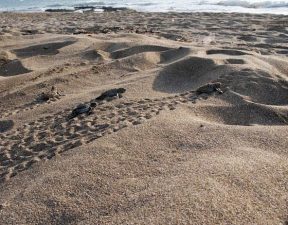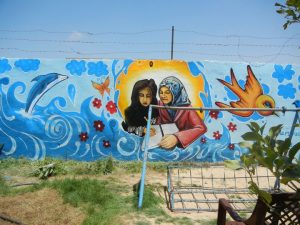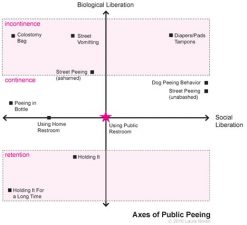 An investigation by Greenpeace has found hormone-disrupting chemicals and a range of phthalates which are classified as toxic to reproduction in Lebanese waters
An investigation by Greenpeace has found hormone-disrupting chemicals and a range of phthalates which are classified as toxic to reproduction in Lebanese waters
Ranking a lowly 114 in the Global Health Index, Lebanon was under no illusion that its waters were the cleanest or most biodiverse. However, a recent report by Greenpeace Lebanon has revealed some rather shocking finds about the toxic nature of the country’s coast. From November 2011 to February 2012, the Greenpeace Lebanon team collected a total of 30 samples from various locations along the Lebanese coast. These were then sent to to the Greenpeace International Science Unit in the UK for assessment. The results showed a “a plethora of dangerous and toxic compounds present in the waters [which] represent a serious risk hazard, both to human and environmental health.”
Solid waste problems, wastewater problems and industrial emissions were highlighted as the three main areas causing contamination. In the case of the wastewater and solid waste, lack of infrastructure and management law were the major problems as well as the “immense lag from the Lebanese state in establishing a proper wastewater network and water treatment plants.” The report added that industrial emissions represent a more sizeable challenge as solutions exist in terms of legislation but aren’t properly implemented.
The samples collected were found to have contaminants such as flame retardants, the hormone-disrupting nonylphenol ethoxylates, low levels of lead, zinc, copper, iron and manganese and a range of phthalates including DIBP and DEHP, both of which are classified as toxic to reproduction. High levels of chromium were also detected in discharged wastewaters from the Lebanese Tanneries and Mounir Bsat facilities in Ghazieh.
The report concluded that further investigations would be necessary in order to identify the specific sources of the chemicals identified in the various wastewater discharges. “Nonetheless, taken together, the results from this study indicate that a broad range of chemical pollutants (both metals and organic chemical contaminants) are discharged in wastewaters from multiple sources to the Mediterranean Coastal area of Lebanon,” added the report.
The report, entitled “Lebanon’s Toxic Coast: an overview of threats, problems and solutions,” also emphasized that the responsibility for combating this problem lies with both the public and private sectors. Speaking to the Daily Star, Rayan Makarem from Greenpeace Lebanon explained: “It is the responsibility of the government to handle the issue of waste-water management through the implementation of current plans to complete the waste-water infrastructure for the country and stop the dumping of raw sewage directly into the Mediterranean.”
“In addition, new legislation should be passed to allow for a complete upheaval of the solid waste sector, which is suffering from the absence of modern rules and regulations,” Makarem said. “Industries in Lebanon can and should be able to control their emissions in accordance with existing legislation … as well as investing in improving their industrial process or in the installation of the required filters.
: Photo via Greenpeace Lebanon/facebook.
For more on Lebanon see:
The State of The Middle East’s Oceans – A Report
Pink Balloon Protest: Lebanese Reclaim Beirut Beach
Lebanese Green Designers Transform Washing Machines Into Beautiful Seats




I read this paragraph fully about the resemblance of most
recent and previous technologies, it’s amazing article.
Look into my webpage … http://twt.gl/PanicAwayReview280444
Florida has beached wales suffering from brain infection due to toxic ocean waters.
They could find more toxins if they were to test specifically for them.